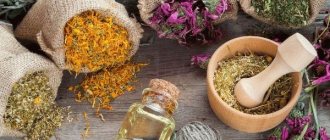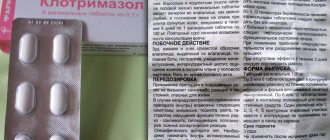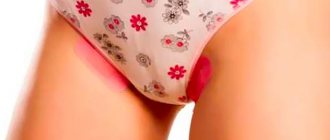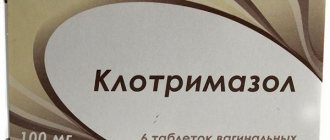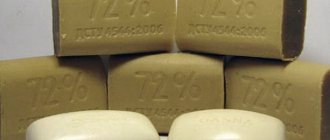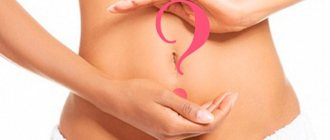Candidiasis: what is it?
Candidiasis is a fungal disease. It occurs due to the growth of a colony of fungi of the genus Candida. You can often come across the opinion that the onset of thrush (another name is candidiasis) is associated with infection with a fungus. That is, the pathogen enters the mucous membrane, after which the development of the disease begins.
This opinion is incorrect. In fact, all people have fungi of this type almost from birth. They are located in the area of the mucous membranes and most often “sleep” in the large intestine and in the genital area. As long as their content is small, fungi do not pose a danger.
But as soon as a certain disturbance or malfunction occurs in the body, the uncontrolled growth of the fungal colony begins. It may start due to one of the following problems:
- Avitaminosis;
- Autoimmune disease;
- Systemic disease;
- Serious blood loss;
- Stress;
- Overload of the body;
- Poor nutrition;
- Hormonal disbalance;
- Lack of hygiene.
All these prerequisites lead to the appearance of thrush. It can be localized in the oral cavity, in the intestines or in the genital area. The fungus needs mucous membranes to develop.
As Candida grows, it covers the mucous membranes with a white film, and a white, cheesy discharge and painful sensations appear.
Types of thrush
There are three main types of thrush:
- oral candidiasis affecting the oral cavity
- intestinal candidiasis (the most dangerous of all types of illness, especially in young children)
- genital candidiasis (affects both men and women).
Causes of thrush
There are several important causes of candidiasis. The appearance of thrush is facilitated by the use of various antibiotics and weakened immunity, for example, due to stress or climate change. Thrush also often occurs in pregnant women, especially in the last three months of pregnancy. Finally, diabetes mellitus and HIV infection contribute to the development of candidiasis.
Standard treatments for thrush
Typically, specialists prescribe medications to combat the fungus. These are antifungal agents, the most popular of which is Pimafucin. Depending on the location of thrush, different forms of release of the drug are used:
- Injection;
- Rectal suppositories;
- Vaginal suppositories;
- Ointments for the genitals;
- Gels for application inside the oral cavity;
- Tablets or capsules in a gelatin shell.
Injection
Candles
Ointments for genitals
Gelatin-coated tablets or capsules
The most popular option is tablets or capsules. A course of drugs is taken for 1-2 weeks, after which the microflora of the mucous membranes is cleared and the infection with thrush stops.
Suppositories for thrush during pregnancy
When a woman is pregnant, her immunity decreases. Therefore, in many cases thrush begins. Self-medication here can have very dangerous consequences. Basically, the doctor may prescribe the following medications:
- Pimafucin, Primafungin and other suppositories in which the active ingredient is Natamycin
- Macmiror complex (allowed for pregnant women)
- Clotrimazole, Nystatin, Borax in glycerin, Gynofort (vaginal cream), Gyno-Pevaril, Pimafucin - allowed in the 2nd and 3rd trimester, prohibited in the first
- Terzhinan, a combination drug, is prescribed to some pregnant women; but the instructions contain information that it is used only as a last resort, because serious side effects are likely
Why official medicine may not be effective
Often the cause of thrush is very difficult to diagnose. The doctor, not understanding what actually causes candidiasis, will prescribe a drug for the fungus. But it will not help to completely cope with the disease: the drug will only eliminate the external manifestations of thrush, while the fungus will continue to develop weakly and affect the body. Due to the fact that the root cause of the disease remains, a relapse will occur.
Homeopathy is much better at diagnosing various abnormalities in the body. It also ensures that the root cause of the disease is addressed rather than simply treating the symptoms. Therefore, in the case of thrush, many turn to alternative medicine.
Rules for taking homeopathic medicines
The drug is made from cuttlefish ink, it helps improve blood circulation in the pelvic organs, reduces the amount of cheesy discharge, swelling of soft tissues, and pain.
At the initial stages of therapy, the secretion of vaginal mucous secretion increases, it can be purulent, and symptoms of cystitis appear: frequent, painful urination. Deterioration of health is observed in the morning and evening.
DETAILS: Treatment of endometritis in women - symptoms, alternative treatment
Sepia for thrush is taken 7 capsules 2 times a day for 2 weeks. For the chronic form of candidiasis, add the drug Creosote C12, 7 granules 2-3 times a day, or drink it with water in a C30 solution.
Treatment of thrush with homeopathy should only be prescribed by an experienced doctor. A large number of drugs have toxic properties and, if taken incorrectly, have a toxic effect on the body and cause a lot of side effects.
Before visiting a homeopath, choose a similar remedy for yourself. Not all of the symptoms described may apply to you. Choose the most similar type that matches your personality.
- If the thrush is acute, order the 12th or 30th dilution from a homeopathic pharmacy. Take daily until symptoms subside.
- For chronic thrush, order the 200th or 1000th dilution. Take 1-2 times a week.
- Take grains (5 pieces each) 20 minutes before meals on an empty stomach.
- The course of treatment should be at least three months.
- As symptoms subside, reduce the frequency of dosing. For example, if you were taking the drug daily, switch to taking it three times a week.
- If you see that the medicine has worked, switch to high dilutions (200, 1000) and take the grains once a week.
Be healthy, dear women!
Benefits of Homeopathy
Treatment of candidiasis with homeopathy is very different from official methods of therapy. If the therapist will eliminate the disease and its symptoms, then the homeopath will direct his attention to improving the entire structure of the body. The main goal of homeopathy for thrush is to normalize the condition of the body and eliminate those factors that provoke the disease.
As you know, the fungus develops only when the body is weakened:
- Suffering from a lack of immunity;
- Feels stressed;
- Has another systemic disease;
- Trying to cope with hormonal imbalances.
Homeopathic treatment of candidiasis is aimed specifically at eliminating these factors. That is, if a specialist in a medical center gives you a pill against fungal infections and stops there, then the homeopath will try to adjust your body’s defenses so that it never again allows the fungus to grow and suppresses it in its infancy.
Among the obvious advantages of treating candidiasis with homeopathy:
- Fewer contraindications. Medicines used in homeopathy do not affect the liver. They do not accumulate in it and do not lead to necrotic changes. This means that patients who suffer from nephrosis, cirrhosis and other liver problems can also undergo a course of therapy.
- No allergic reactions. Natural compounds are used for treatment. They contain much less chemicals than pharmacological drugs. This allows you not to worry about allergies. If an allergy to one of the homeopathic medicines is nevertheless discovered, you can always find an analogue. But choosing a worthy drug replacement is much more difficult.
- No adverse reactions. They appear only in people with hypersensitivity. Most patients do not suffer from the side effects typical of standard medications after a course of homeopathy (dizziness, nausea, rash, sleep disturbances, etc.). With homeopathy you can forget about all this.
- Can be used from an early age. Some herbal formulations are allowed even for small children. But pharmacological antifungal agents are often prohibited for infants and children under 3 years of age.
- Possibility of using some therapeutic methods during pregnancy. We are talking about massage, acupuncture, etc. techniques, as well as taking herbal formulations.
Advantages and disadvantages of suppositories for thrush
The advantages of local treatment of vaginal candidiasis are:
- the active substance of the drug blocks the growth of fungi in place, so the effect occurs faster with local treatment
- suppositories have been developed, of which just one per course is enough, there is no need for long-term painful treatment
- Local drugs have a low level of systemic absorption, therefore fewer side effects than, for example, from tablets
“Disadvantages” of treatment with suppositories or vaginal tablets:
- slight discomfort: restriction of sexual life, possible stains from candles on underwear and bed linen, on clothes, etc.
- suppositories are suitable for monotherapy only if the thrush is mild; if the disease is chronic or recurrent, then antifungal medications are also needed, which are available in the form of tablets
- for chronic candidiasis, the course of treatment must be repeated after some time, but according to the doctor’s decision, and not based on one’s own thoughts
- as stated above, when using combined suppositories, dysbiosis may develop, therefore, after such treatment, suppositories with lactobacilli are used
Homeopathic methods for diagnosing thrush
During diagnostics, bioresonance devices are used. They read vibrations of various tissues and organs.
With the help of such equipment, you can find the localization of thrush, as well as determine what triggered the disease. Also, by paying attention to the difference in fluctuations within one organ, you can understand where the largest accumulation of fungus is located. After all, small microorganisms also have their own vibration frequency.
Treatment Options
Homeopathy for thrush offers the following medications:
- Echinacea. Can be used as part of a Vaseline-based tincture or gel. Echinacea kills fungus and saturates the body with beneficial elements. It improves immunity, nourishes mucous membranes and makes them less resistant to damage. The product can be used by both children and adults. Contraindication – individual intolerance to this plant.
- Sulfur. The drug is prescribed if blisters form on the oral mucosa or oral cavity. It helps against unpleasant odor and white discharge. Can only be used in adults.
- Natrum Meriaticum. Intended for the treatment of oral and genital candidiasis. Helps eliminate rashes on the lips and tongue. Fights pain. This drug is prescribed if there is pain, but the white discharge is not pronounced or absent at all.
- Aloe. Designed to combat rashes on the inside of the cheeks. Will not help against blisters and films on the tongue. Suitable for children. If a child has diarrhea due to intestinal candidiasis, Aloe is considered the best option.
- Salikulits Acidum. Prescribed for severe indigestion, which is expressed by vomiting. Another indication for the use of Acidum is white discharge in the stool. The drug helps against intestinal candidiasis.
Echinacea Sulfur Natrium Meriaticum
Aloe
To use homeopathic medicines, you need to be able to calculate the dosage. It is recommended to seek advice on this issue from a homeopath.
Symptoms of thrush
With genital candidiasis in women, the lesion covers the vagina and external genitalia. In men, the head of the penis is affected, as well as the foreskin. Let's look at the symptoms of thrush.
Women complain of burning and itching in the area of the external genitalia, pain during sexual intercourse and urination. The most striking sign of the disease is white vaginal discharge, the structure of which resembles cottage cheese.
Men note burning and itching in the area of the head of the penis and foreskin, redness of these elements of the reproductive system is observed, and a white coating appears on the head of the penis. Just like women, men complain of pain during sexual intercourse and urination.
Oral candidiasis is expressed in the appearance of a white coating in the oral cavity, which gives the impression that the patient drank kefir.
In children, thrush manifests itself in the form of redness and swelling of the skin and itching in the affected area.
The main symptom of intestinal candidiasis is bloating and gas formation, as the fungus “ferments” food. General weakness and fatigue are also noted.
Prevention
Despite the fact that after homeopathic therapy the general condition of the body improves dramatically, there is still a small risk of recurrence of the fungus. A recurrent illness may be caused by the fact that the course of homeopathy was not long enough. Other causes of relapse:
- The patient refused to follow the homeopath's recommendations;
- Therapeutic measures were not followed sufficiently;
- The specialist’s instructions were not followed correctly;
- The method of homeopathy was chosen incorrectly due to the unqualified specialist or inaccurate diagnosis;
- After the course of treatment, the patient was too affected by some serious illness or severe shock, which led to the nullification of all the efforts of the homeopath.
Reviews
Reviews on the use of homeopathy:
Elena, 29 years old: “I struggled with genital thrush for 3 years. Antifungal drugs did not help, although I managed to try everything, including the strongest ones. The result of taking them was not a cure for the disease, but only its worsening: the microflora of the mucous membrane suffered from taking the drugs, which is why, in addition to thrush, other mycoses appeared. Two months ago we went to a homeopathic clinic. In just a month they helped me cope with most of my symptoms. The thrush is much less pronounced, and third-party mycoses have disappeared. The liver, which was overloaded with medications, no longer hurts.”
Anastasia, 38 years old: “I am not a supporter of official medicine. In addition, I have a severe liver disease that prevents me from taking many medications. Therefore, when I was diagnosed with thrush, I immediately resorted to treating candidiasis using homeopathic remedies. I used Echinacea, massage and some other techniques. I didn’t visit the clinic, but I consulted with specialists remotely. As a result, the disease was cured without any medications, which would have seriously affected my health.”
Evgeniy, 35 years old: “I suffered from a severe form of chronic candidiasis in the oral cavity. Constant white coating, burning sensation, bad breath. After unsuccessful attempts to cure candidiasis with medications, I turned to a homeopath. Unfortunately, this method of therapy did not help me too much. But from a homeopath I was able to find out exactly why I had developed a chronic disease: the diagnostic device detected some kind of disorder of the thyroid gland. And indeed, it turned out that due to hormonal imbalance, my immunity was reduced, which contributed to the development of thrush. I cured my thyroid gland with the help of official medicine, but I am still grateful to homeopaths.”
How best to treat and with what
Until now, classical medicine is trying not to take homeopathic medicines, but in vain. Many years of practice show the effectiveness of treatment.
The principle of operation is this: like cures like. If you take a certain dose of the drug, you can be completely cured after a certain period of time. Drug development includes toxins, poisons, plant substances and trace elements.
Homeopathy treatment gives good results and this must be taken into account. In addition, the drugs do not contain harmful components that can cause addiction.
Results
So, for thrush, homeopathy is a good alternative to standard therapy. It can help patients who have been unable to cope with the disease for many years. But such treatment methods must be used with caution, preferably after consultation with a homeopath. You can contact him at any homeopathic clinic, of which there are many in large cities.
Echinacea compositum
This is a homeopathic drug that has immunomodulatory, anti-inflammatory and detoxification effects. When treating thrush, the remedy helps:
- relieve swelling of the mucous membranes;
- reduce itching and pain;
- increases local and general immunity.
This helps restore healthy vaginal microflora.
Echinacea is administered intramuscularly, taken orally, or injected subcutaneously into acupuncture points. The treatment regimen is selected individually for each woman by a homeopathic doctor. Typically injections are given 1-3 times a week.
At the beginning of the therapeutic course, an increase in body temperature is allowed, in rare cases, salivation increases, and an allergic reaction develops. The drug is prescribed for pregnant and lactating women for special indications.
DETAILS: Fingers go numb in the morning causes, prevention, treatment
